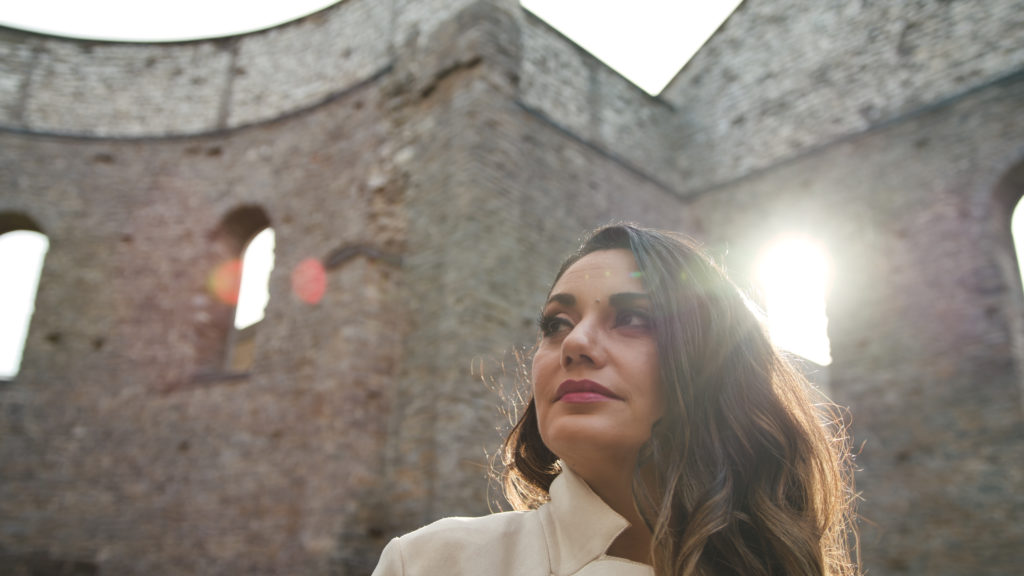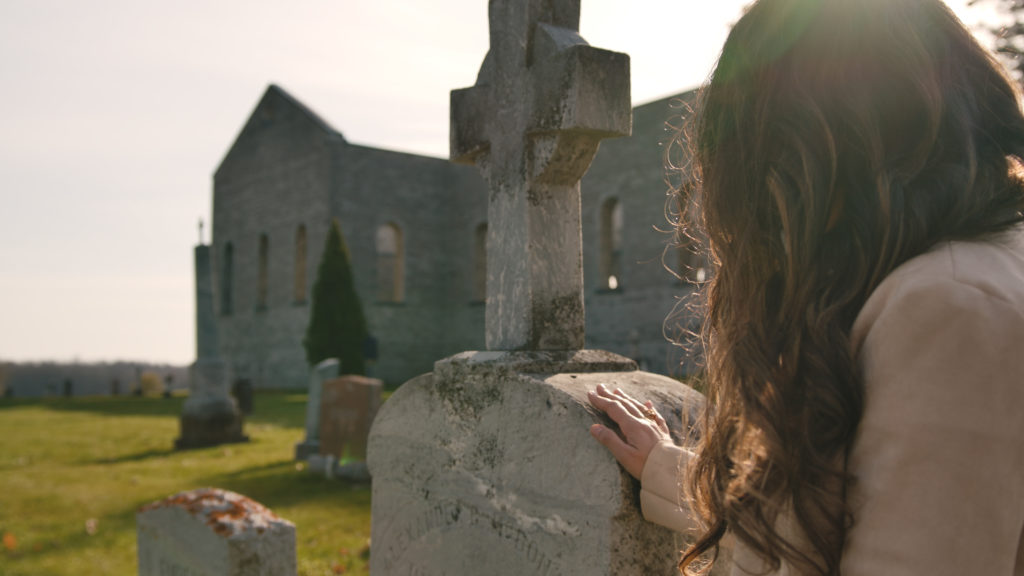
Juno-nominated soprano Miriam Khalil has appeared on numerous opera stages across Canada and Europe, and is an alumna of the Canadian Opera Company Ensemble Studio. She won first place in the Metropolitan Opera National Council Auditions (Great Lakes Region) and subsequently appeared in the 2007 documentary The Audition.
Here, she discusses why filming her portion of Messiah/Complex brought back memories of moving from Syria to Canada when she was a young girl.
“Until the age of seven, my family lived in Damascus, Syria, and so my first language was Arabic. I started singing in a church choir in Damascus from age three, and my father sang in the adult choir of the same church. The priest who conducted us way back then is still preaching and conducting at that same church and choir in Syria.”
“My portion of Messiah is If God Is For Us— and I sing it in Arabic. The translation didn’t exist, so I called my parents, and asked if they could help me translate the phrases and text into formal Arabic. I knew which words I wanted to highlight…. and because of COVID, we translated the piece together over FaceTime, so they could hear me emphasizing the syllables, and singing to them.”
“When we moved to Canada, it was exciting, but my parents never let me talk to them in English— which was frustrating at the time, but I’m grateful for it now, because I’m still fluent in Arabic. Growing up in Ottawa, on Sundays our family would go for picnics, if the weather was nice. Once, we drove to some old church ruins, surrounded by a cemetery—Saint Raphael’s Ruins, I later learned. It was so beautiful there, and the setting reminded me of parts of Old Damascus, where I was baptised.”
“That’s why we decided to film my portion of Messiah/Complex at Saint Raphael’s Ruins. On that November day, it was so beautiful outside, the temperature was warm for that time of year. My brother came with me. I hadn’t been there since the day we had our family picnic… all those years ago. I remembered that when we first moved to Ottawa, I was struck by how green this city was. As we filmed, I noticed the green grass coming up inside the church ruins—nature was growing within those ruins, nature was taking over—taking it back. Resilient.”

“Being a part of this production is a big deal for me. When you move from somewhere else in the world to Canada, and you’re little, you’re so eager to fit in and be like everybody else. I learned French and English, and couldn’t wait to sound like all the other kids. In fact, I wanted to eliminate my accent, and in a way, obliterate a part of myself.“
“Now, to sing Messiah in Arabic, and have the TSO accompany those words—well, it legitimizes the idea that all languages are important. For me, this is a chance to show the next generation that we should never have to question any language being spoken, or any culture being amplified.”

“The lyrics, If God Is For Us Who Can Be Against Us, is a powerful statement. For me, what this statement means is this: When you have love, you can face anything. Whether it be with the creator or my loved ones, I feel like I can face anything. At this time, in this moment, that’s the message I want to share.”
Thank you to Miriam Khalil for contributing her artistic voice and being a part of this project.
Follow Against the Grain Theatre on Facebook, Instagram, and Twitter for up-to-date news about Messiah/Complex.
